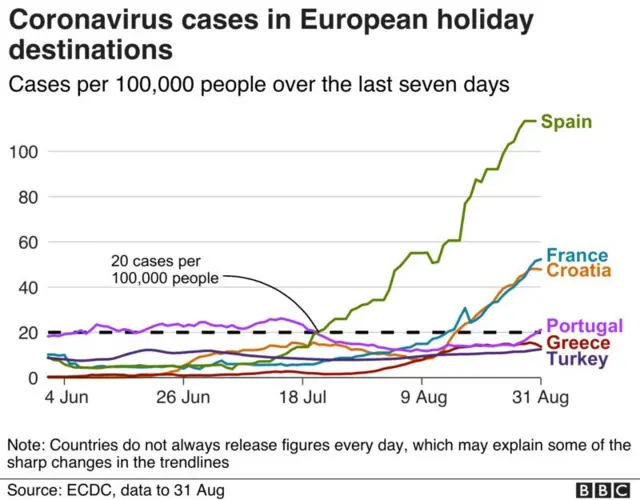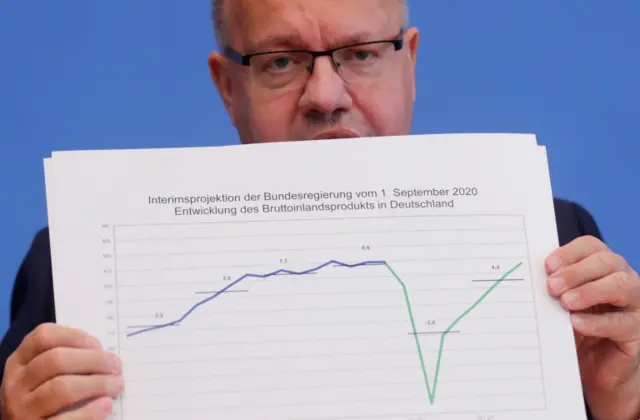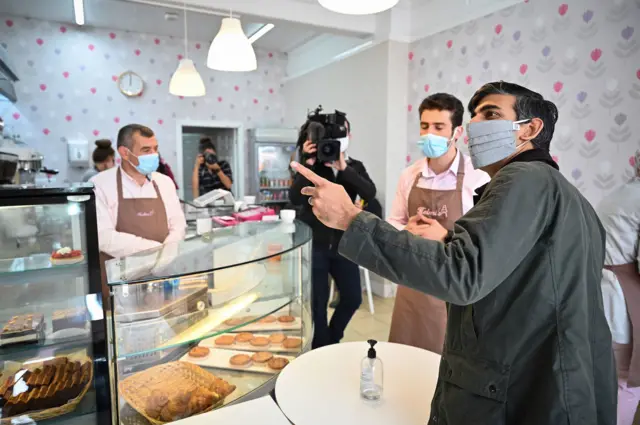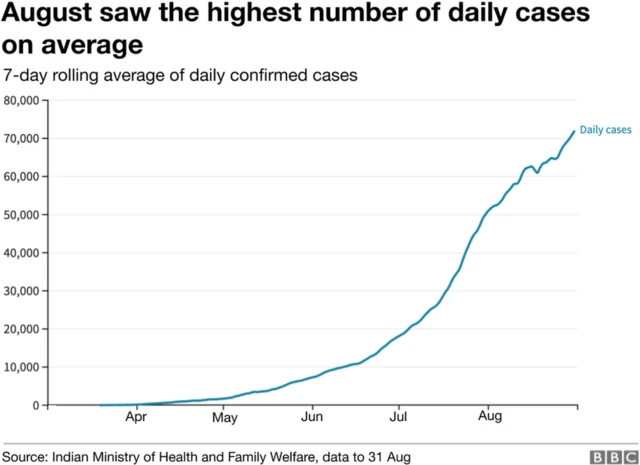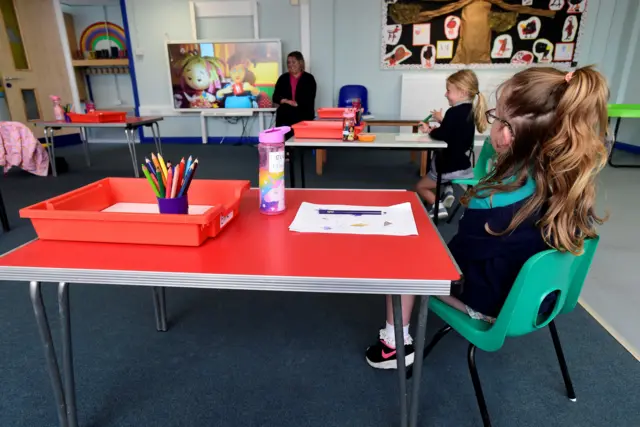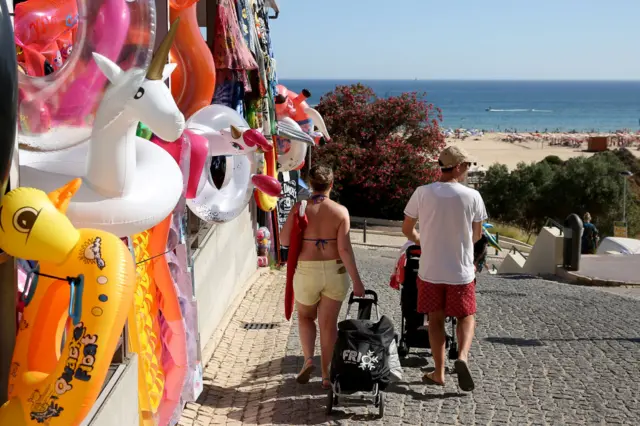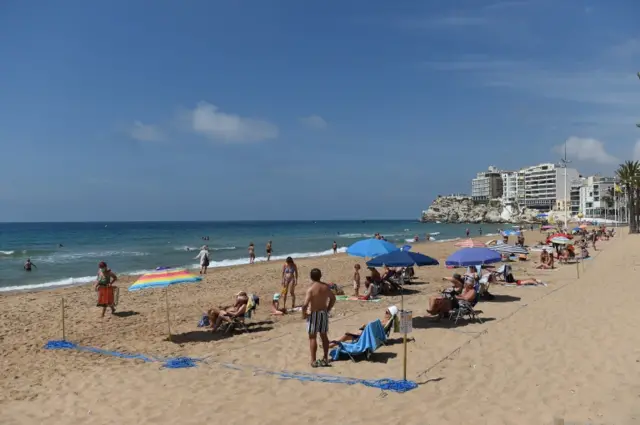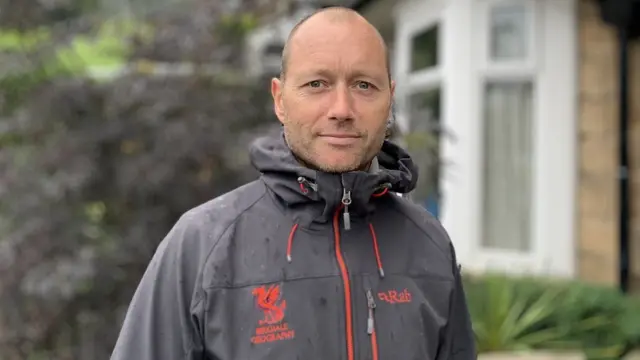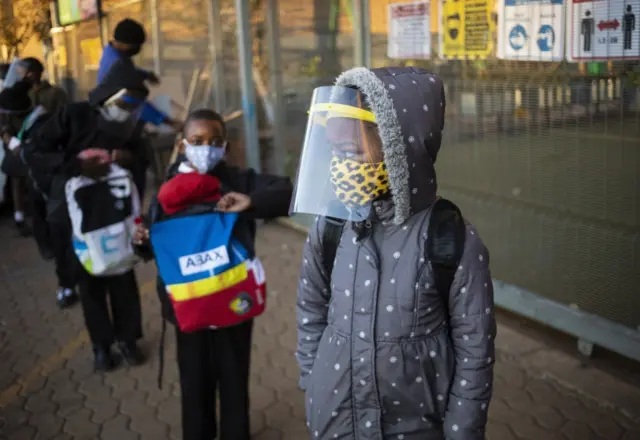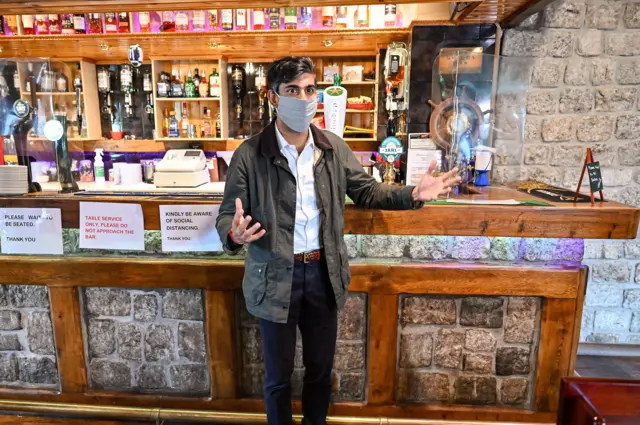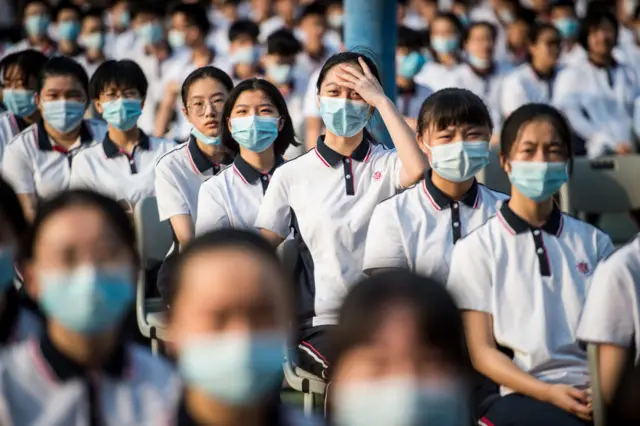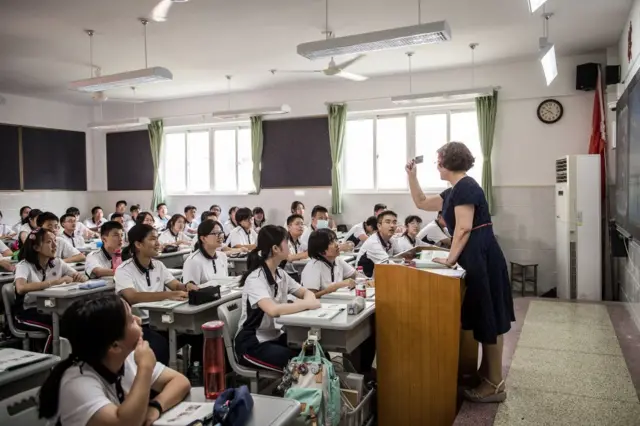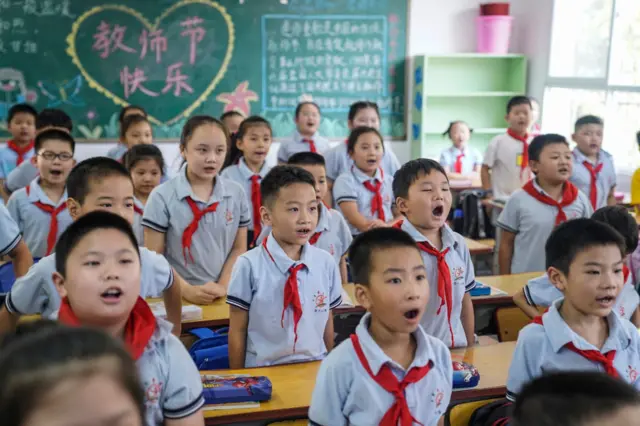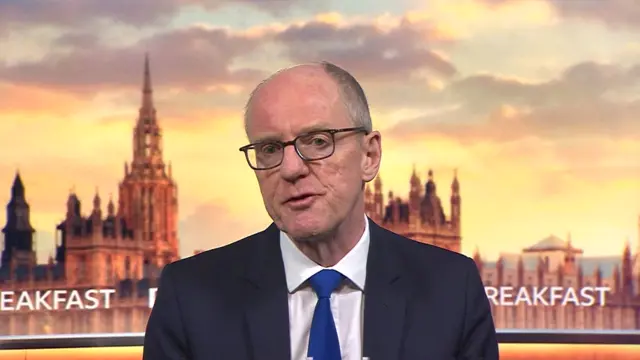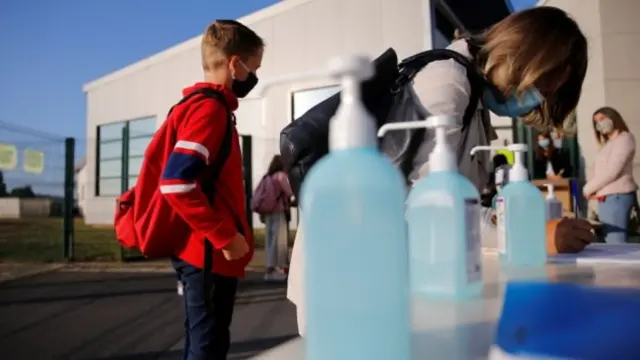Coronavirus cases in European holiday destinationspublished at 12:04 BST 1 September 2020
As we told you earlier quarantine measures could be reintroduced for people arriving to the UK from Portugal amid a rise in coronavirus cases there.
As of 31 August Portugal had 21.1 cases per 100,000 people. Being above 20 per 100,000 is one of the key triggers for a UK quarantine to be imposed. The country was taken off the quarantine list as recently as 22 August.
The graphic below shows how the number of cases in other European holiday destinations. Spain, Croatia and France are already on the UK list.
